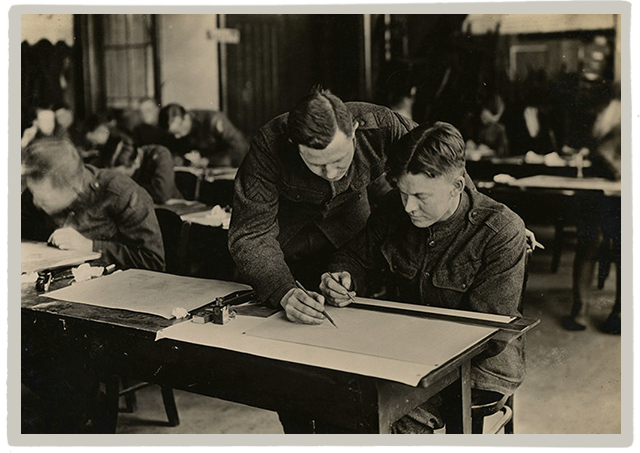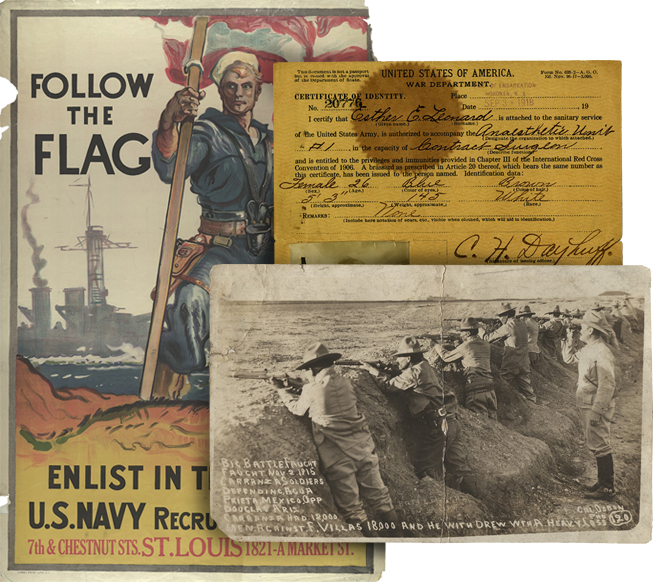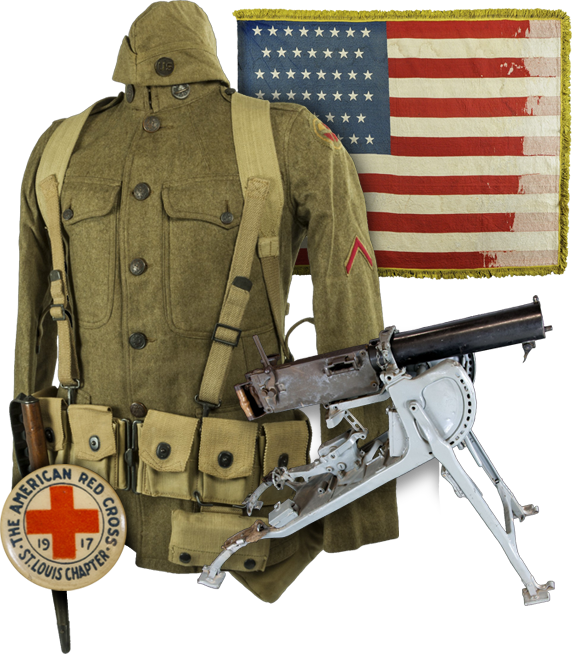John Franklin Hardesty Sanitation Instructions - March 19, 1918

Transcript
A.D.M.S., 51st (H) D. No. 4268 SANITATION. A.D.M.S. INSTRUCTIONS. The Medical Officer of a Unit is responsible to the Officer Commanding the Unit for the efficient carrying out of the work of the Regimental Sanitary Detachment. He is further charged with advising his Officer Commanding on all matters connected with the preservation of the health of the troops. It is also pointed out that Sanitary control and responsibility devolves upon all Medical Officers when assuming Medical Charge of a Unit even for a few days. Each Medical Officer must exercise the most careful supervision over the sanitation of the Unit, and, in addition, over that of the village or town generally where the billets are situated. Each Medical Officer in Charge of a Unit should keep a Sanitary Diary in which are noted his recommendations to the officer commanding regarding Sanitary matters, and not the result of such recommendations. The Medical Officer will report to the A.D.M.S. any failure to carry out these recommendations. 1. SANITARY PERSONNEL. Establishment. [chart] Unit. Corporals. Privates. Infantry Battalion. 1 8 Divisional M. G. Battalion. 1 8 Field Artillery Brigade. 1 8 Divisional Ammunition Coln. 1 4 Field Co., R. E. - 2 Divisional Signal Co., R.E. - 2 Divisional Train, A.S.C. 1 5 This consists of Regimental Personnel fully trained in duties relating to field conservancy and disinformation. These men are to be employed under the orders of the Regimental Medical Officer and should give their whole time to the work. 2. PROTECTION OF FOOD. To ensure that the food is issued in good order, Medical officers should make regular inspections of Quartermasters' Stores to ascertain that there is not carelessness there in the handling of food on issue. All food must be kept in safes to prevent contamination by flies, dust, etc, These safes should be provided with wire gauze or muslin sides and door. All places where food is stored must be kept scrupulously clean. 3/

Transcript
Page 2. 3. WATER SUPPLY. Establishment od Water Duties Personnel. [chart] Unit. Corporals. Personnel. Infantry Battalion. 1 4 Divisional M. G. Battalion. 1 4 Field Artillery Brigade. 1 4 Divisional Ammunition Colm. 1 2 Field Co., R. E. - 2 Divisional Signal Co., R.E. - 2 Divisional Train, A.S.C. 1 3 Divisional Headquarters – 2 It is the duty of the Medical Officer to satisfy himself that the water Personnel are thoroughly conversant with their duties. To ensure that the water supply of Units is of good quality and fit for drinking purposes, Medical Officers in charge of Units will examine the water at frequent intervals by means of the Horrock's Test Aparatus, (i.o. Case, water testing Sterilization), in their possession to ensure that variations are noted as they occur, and will instruct the water duty orderlies as to the amount of Chlorides of Limo, (i.o. bleaching powder which his required for complete chlorination of the water. In addition, the water in Water Carts should be very frequently tested by Medical Officers for free chlorine. If, on the addition to a cupful of water from Water Cart of a few drops of the Iodine and Starch testing solution, a blue colour develops at once, free chlorine is present and all is well. If, on the other hand, no blue colour develops, free chlorine is not present and the Medical Officer must satisfy himself whether:- (a) The chlorine has had time to combine completely with organic matter. (b) An insufficient amount of bleaching powder has been added. (c) A poor sample of bleaching powder has been used, or, (d) No bleaching powder has been added at all. N.B. The above Test takes only a few seconds to do. It is pointed out that bleaching powder deteriorates very rapidly on exposure to air or damp, thus tins must be air-tight and kept dry. It is also pointed out that in carrying out the Horrock's Test , exposing the cups to sunlight during the Test causes a more rapid dispersion od the blue colour and this leads to a fallacy in the rest. Medical Officers should also practice with , and instruct personnel in the use of the case, chemical water testing for metallic Poisons at frequent intervals. THE THOROUGH SCOURING AND BRUSHING OUT OF ALL WATER CARTS AND TANKS AT LEAST ONCE A WEEK WITH A STRONG SOLUTION OF BLEACHING POWDER SHOULD BE SUPERINTENDED BY MEDICAL OFFICERS IN PERSON. 4. COOKHOUSES. These must be regularly inspected by the Medical Officers to ensure scrupulous cleanliness and tidiness. All /

Transcript
page 3. All boathouses should be constructed with floors of solid foundation. Earth floors are always objectionable. Cooks must have proper accommodation for washing provided in the vicinity of the cookhouse. Nail brushes should be provided and care taken that the cooks' fingernails are cut short and that the nail brushes are used as routine when washing the hands. Overalls or aprons should be provided for cooks. G.R.O. 2524 authorities 12 aprons per Field Ambulance, and G.R.O. 2567 authorises 1 canvas suit (coat and trousers) per 100 men (with a minimum of 50) replaceable every 6 months is required. It is further recommended that Regimental Funds be used to provide additional suits required. Arrangements should be made for the frequent washing of these suits and aprons. Nothing unconnected with the preparation of food should be permitted in the cook house. clothing or equipment must on no account be kept there. Proper chopping boards should be provided and those must be thoroughly scrubbed at least daily. The interior of the cookhouse should be whitewashed with lime from time to time as required. A grease trap is an essential attachment to every cookhouse and must be properly constructed and kept clean. Instructions should be given that any man suffering from diarrhoea when employed in the handling of food must report sick immediately, and no man suffering from diarrhoea, or who has recently suffered from dysentery or suspected dysentery or typhoid, paratyphoid, or on enteric group of disease, should be allowed to handle food supplies. Covered receptacles for refuse should be placed near each cookhouse, and these must be emptied at least twice a day. 5. LATRINES. Deep latrines 8 to 12 feet deep should be used. They will in every case be flyproof, i.e. provided with boxed-in seats and well fitting lids. The seats should be washed and disinfected daily. Care must be taken to see that no chloride of lime or other disinfectant is put into the latrine pit. Where the nature of the soil does not permit the digging of deep latrines, the bucket system with flyproof will be used. 6. URINALS. Urine should be disposed of in properly constructed absorption pits at convenient spots. Urine tubs or tins should be provided for night use outside billets. They should be emptied every morning and stored during the day near latrines. 7./

Transcript
page 4. 7. ABLUTION. Covered in ablution places provided with benched and washing bowls should be erected and steps taken to ensure their use by the men. They should have a liberal water supply laid on. The sullage water from ablution houses should be conducted into a sedimentation tank large enough to hold about 20 hours waste water, and there treated with chloride of lime. From here it should be run into a large soakage pit filled with burnt tins and rubble. 8. DISPOSAL OF REFUSE. All refuse and garbage should be placed in receptacles provided with covers so as to prevent access of flies. For the drier refuse, sacks may be used. All rubbish should be collected and burnt in properly constructed incinerator. When in the line where incineration cannot be carried out, refuse should be buried in deep pits. 9. HORSE MANURE. This must be removed to the authorized Manure Dump and there properly stacked and covered. [stamp] A.D.M.S. No._ 19 [March] 1918 51st (Highland) Division. D Rorie Colonel. A.D.M.S., 51st (Highland) Division. Copies to:- "A" D.D.M.S., IVth Corps. D.M.S., Third Army. All Regimental Medical Officers. All infantry Commanding Officrs. O.C., 51st Bn. M.G.C. O.C., 1/8th Royal Scots. Each Brigade (Infantry and Artillery.) Camp Commandant. Divisional Train. C.R.E. C.R.A. D.A.D.V.S.
Details
| Title | John Franklin Hardesty Sanitation Instructions - March 19, 1918 |
| Creator | Rorrie, Colonel D. |
| Source | Rorrie, Colonel D. John Franklin Hardesty Sanitation Instructions. 19 March 1918. John Franklin Hardesty Papers, 1867-2007. A2293. Missouri History Museum, Saint Louis, Missouri. |
| Description | John Franklin Hardesty entered the U.S. Army Medical Corps and volunteered to serve as a surgeon with the British Army during WWI. These documents, signed by Colonel Rorie, A.D.M.S. 51st Highland Division, provided sanitation instructions for unit medical officers. |
| Subject LCSH | World War, 1914-1918--France; Sanitation; Water supply; Refuse and refuse disposal |
| Subject Local | WWI; World War I; Protection of food |
| Site Accession Number | A2239 |
| Contributing Institution | Missouri History Museum |
| Copy Request | Transmission or reproduction of items on these pages beyond those allowed by fair use requires the written permission of the Missouri History Museum: 314-746-4510 |
| Rights | The text and images contained in this collection are intended for research and educational use only. Duplication of any of these images for commercial use without express written consent is expressly prohibited. Contact the Missouri History Museum's Permissions Office at 314-746-4511 to obtain written consent. |
| Date Original | March 19, 1918 |
| Language | English |



